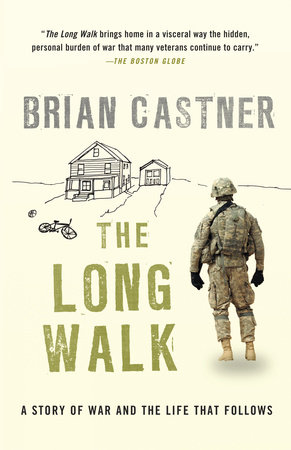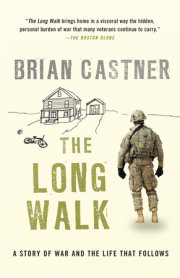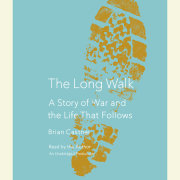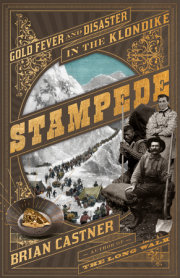I | Whirl Is King
The first thing you should know about me is that I’m Crazy.
I haven’t always been. Until that one day, the day I went Crazy, I was fine. Or I thought I was. Not anymore.
My Crazy is a feeling. It’s the worst, most intolerable feeling I’ve ever had. And it never goes away.
When you’re Crazy, you make a list of people you have told, the people you have come out to. My list is small. One best friend but not another. Jimbo and John and Greg, but not the other guys on the team. Your wife but not your mother. Those that you think will get it, will understand.
And now I’m telling you. That I’m Crazy, and I don’t know why.
The second thing you should know about me is that I don’t know how to fix it. Or control it. Or endure from one moment to the next. The Crazy is winning.
So I run.
I run every day, twice a day sometimes, out the front door of my peaceful suburban home, past sticky blast scenes of sewage, and motor oil, and bloody swamps of trash and debris, ankle deep, filling the road, sidewalks, shop and house doorsteps. I run through dust clouds, blown in off the desert or kicked up by the helo rotor wash. I run past the screaming women that never shut up, don’t shut up now. I should have made them stop when I had a chance. I run as fast as I can, as long as I can, my feet hitting the pavement in a furious rhythm, along the river near my home.
I run in the hottest part of the day, the full afternoon blaze, the heat of the black asphalt, baking in the summer sun, rising through my shoes and into my feet. I speed up, but the Crazy feeling is still winning. It overwhelms. Sweat pours down my flushed face, in my eyes. Albeitz is chalk white skin and brown dried blood from head to toe. Kermit’s skin was blue, after they finally found him and put him in his box. Did Jeff have any skin left to show his mother?
I run every day, on the road and along the river stretching to my left, occasionally veiled by low trees swaying in the sunshine and the light breeze off the water. My left knee started aching five miles ago. My teeth are rotting out of my head. My throat closes. My left eye twitches. The detonation rains concrete chunks on my head, splits my ears, dismantles our robot, and peppers the armored truck with molten steel. I reach for my rifle.
I run down the road outside my home, to the drone of Humvee diesel engines and in the purple sunrise over a flat desert. The Crazy in my chest is full to bursting, but the protest of my overworked lungs and heart tamps it down. The Crazy feeling never leaves, but the run makes the rest of the body scream louder, one din to cover another.
The foot sits in the box. Because why not? Where else would you put it? The foot sat in the box.
I run and don’t want to stop. The adrenaline has been building all day, and it finally has a release. The boil overflows. Fidgety legs and shaking arms pump and swing. When I stop, the Crazy feeling refloods my swollen heart, lungs, ribs. My eye twitches. I speed up again.
My head swims and swirls. Helicopters and dust fade. I put my rifle down, shrug off my vest. Sweat wipes clean Albeitz’s hands, and Ricky’s head, and Jeff and Kermit, and . . . and? My knee is screaming louder than the women. My ragged breath shakes my chest. I run, and run, and run, and in the Is try to pound out of my head what once Was.
The C-130 landed in Kirkuk just before dark. A couple of Toyota Hilux pickup trucks, driven by our tired predecessors, were there to meet us at the end of a long and exhausting day. Truth is, they would gladly have met us at any time, in the middle of the night even, because our arrival meant they could leave. Leave to go home, to wives and children and sex and alcohol and sleeping in and not getting shot at. The place we had just come from.
You can drive the little stick-shift Hiluxes on the FOB—our walled Forward Operating Base—because no one is trying to kill you there. It’s a foreign reminder of home, a normal thing to do every day. Get in a regular truck and drive, on the right side of the road, at a normal speed, with no one trying to shoot you. Simple pleasure.
Bags of gear piled high in the truck beds, we pulled up to the converted hardened aircraft shelter on the west side of the runway, our home base for the rest of our tour. The French-made blast doors of the HAS were cracked open, and the two-foot-thick rounded concrete roof arched three stories overhead. Inside were the aluminum bunk trailers, the plywood offices and ops desk, a tent or two housing dusty equipment. Our whole operation, under the protective concrete canopy.
As I lay in bed that night, in my new cell—bed, table, trunk, shelf—I stared at the ceiling. I closed my eyes, and I was in my old room in Balad. I opened them in Kirkuk. Closed, and I smelled the diesel fuel off the droning generator, the dead mice caught in our traps, the rotting tent flaps of my fabric-partitioned room in Balad. Open them and it’s just the sheet-metal ceiling of my box in Kirkuk.
I’m back. I’m still here. I never left.
It was less than a year and I was back in Iraq. It was less than a minute and I was back in Iraq.
I needed to be back. I would do better this time.
I lie in bed blown up like a balloon, my chest distended and full. The Crazy feeling has filled me to the brim in the darkness of my bedroom, alone next to my sleeping wife. My left arm has gone numb again, left eye twitching as I attempt to close it. The gurgling in my back is growing, first low, then on my upper left side. My heart beats loud, hard, sporadic. I miss a beat. Speed up, catch up. Miss two. A catch-up again. The more I miss the more the Crazy feeling grows. High, full, boiling sea.
I sit up, turn my feet over the side of the bed, and just try to breathe. My lips tingle and my head spins. My wife has found me on the floor before, face to the pine, a divot on my forehead where I hit the dresser corner on the way down. I lie back down to avoid a repeat.
My heart bumps, skips, and gurgles. My jaw aches and I check again for loose teeth. My eye twitches. And again. The Crazy feeling builds and builds. It never stops, it never ends, there is no relief.
My helium chest is light as a feather. The weight of the ceiling is a granite block pushing my chest into the bed.
What the fuck is happening to me?
The streets got narrower and narrower as we entered the town of Hawija. The broad highway gave way to two-lane main arteries, then narrower neighborhood roads, then one-lane funnels between high courtyard walls. Over a curb and through one tiny gap, and our driving mirrors on each side snapped off clean, our door handles scraping away rock and concrete in the pinch point. Flanks scoured clean, our armored truck now matched the security vehicles to the front and rear.
No one drives through the heart of Hawija unless forced; so much hate packed into such a small space. But with the ring roads blocked by route-clearance teams and security cordons, we plunged into the center, as fast as the Humvees allowed.
Dodging old blast craters, dead dogs, and mountainous garbage piles, we snaked through fortified neighborhoods before hitting the marketplace at the town’s center. In the busy market, the number of civilians suddenly swelled, and our convoy started to get bogged down, weaving but stymied by foot and vehicle traffic. Soon the mass of humanity started to press in, and we slowed further.
“Why are we slowing down?” I yelled up to Ackeret, who was behind the wheel.
“There are people in the way, and they won’t fucking move!” came the reply.
Slowing is okay. Stopping is not.
I turned in my seat, faced out. I checked my rifle mag, pistol, stretched in my body armor and readjusted it. Right hand went to the rifle, left hand to the truck door handle. We slowed further.
I searched the crowd. Booths and stalls, selling fruit and electronics, lined the sidewalks. The crowds walked and pushed closer and closer the slower our Humvees went. Kids pointed at us through our armored glass windows, yelling then scurrying back down alleyways that emerged every half block. I scanned for threats, but the tent covers of the shop booths, stretched taut to shade the harsh summer sun, blocked my view of rooftops. Shots from higher ground? An RKG-3 antitank grenade, tossed from the opening crowd? The Iraqi Army and local police were nowhere to be seen. I readjusted my rifle again, and popped open the dust covers on my optical sight.
But we had not stopped. Not yet.
Men with flat faces of unreadable sternness, walking alongside, began to look into the Humvee windows. Kids moved up, tapped on the door, and then ran off, disappearing into the rabbit warrens. If the attack comes, it will be quick. The crowd, like a school of fish, will suddenly all turn and move away. The sea parts, the attacker rushes in, grenade already in the air. A detonation, a lance through the flimsy armor, a flash through arm, leg, chest, and then the flock closes again, attacker absorbed, and scatters.
We stopped. Ackeret repeatedly hit the steering wheel in frustration.
I looked out, and the enraged beast was now pressed against the side of the Humvee, banging and yelling.
“We need to get moving!” But we didn’t. We had ground to a halt in the center of the market.
I gripped the door handle tighter. If we started to get overrun, we needed to disperse the crowd. There was a small gap, less than eighteen inches, between my door and the edge of the mob. I placed my foot on the bottom of the door, and prepared to push. With no top gunner on our Humvee, we’d have to exit and shoot to get a rioting crowd to move back. In one motion, I would throw the two-hundred-pound door open into the throng as hard as I could and rush out. My rifle would come up and forward, barrel end a battering ram directly into the chest of the man closest to me, pulling the trigger as I moved the rifle back to my shoulder. The man in the red-and-white shirt would die first, bullet into chest with no gap between barrel and skin. The next three, teenager in a Nike shirt, older man in a tan man-dress, and another with a bike, would die from my shots two feet away, probably as they fell back in reaction to Red-and-White going down. With the crowd knocked back from the force of the opening door and the shock of the first four dead, I would have time to remount. And if not, if I was swarmed and my rifle grabbed, the pistol in the cross-draw holster on my chest was in easy reach of one hand. It could come out, and need not move far for me to fire and earn me a second or two.
The crowd had to break. The convoy had to move. I would get back to the FOB. I would get home.
I chose who would die in what order. Red-and-White, Nike Shirt, Man-Dress, then Bike. I looked in their eyes, flipped the safety on my rifle to Single, and waited.
I waited for the shot to come. It didn’t.
I waited for the grenade to be thrown. It wasn’t.
I waited for the mob to riot. They didn’t.
With a crawl, we started to move again, and drove off.
The Crazy didn’t start right away. It stalked me for years.
Your first sign something may be amiss comes quickly, the moment you get off the plane at the airport in Baltimore. After months of deprivation, American excess is overwhelming. Crowds of self-important bustling businessmen. Shrill and impatient advertising that saturates your eyes and ears. Five choices of restaurant, with a hundred menu items each, only a half-minute walk away at all times. In the land you just left, dinners are uniformly brown and served on trays when served at all. I was disoriented by the choice, the lights, the infinite variety of gummy candy that filled an entire wall of the convenience store, a gluttonous buffet repeated every four gates. The simple pleasure of a cup of coffee after a good night’s sleep, sleep you haven’t had since you received your deployment orders, seems overly simple when reunited with such a vast volume of overindulgent options.
But the shock wears off, more quickly for some, but eventually for most. Fast food and alcohol are seductive, and I didn’t fight too hard. Your old routine is easy to fall back into, preferences and tastes return. It’s not hard to be a fussy, overstuffed American. After a couple of months, home is no longer foreign, and you are free to resume your old life.
I thought I did. Resume my old life, that is. I was wrong.
The car bomb went off just outside of our FOB, in downtown Kirkuk, on the highway that leads north to Irbil and the peaceful Kurdish lands untouched by the war. We felt it in the HAS, a shaking rumble like thunder on a clear hot day. We had put our gear on and were waiting for our security escort even before the call came in to go investigate.
The car had stopped burning by the time we arrived. A twisted black shell, frame, and engine block smoldering, hot to the touch. The Iraqi Police had cordoned off the scene, yelling at pedestrians to move back. The reverse dichotomy always struck me. The scene of the blast, where so much violence had happened minutes before, was now empty and quiet. The surrounding neighborhood, peaceful until the attack, was now a roiling cauldron of frustration and anger.
Castleman and I started the investigation at the blast hole. The asphalt punctured, wet with a mix of fluids, some mechanical, some human. The car frame was several feet from the crater, thrown by the force of the explosion. It yielded no clues; any wires, switches, batteries, or fingerprints were burned away in the fire. We could have found traces of explosive residue if we had had the time. We didn’t have the time.
I looked up from the hulk and surveyed further out. Chunks of steel frag were buried in a nearby concrete wall. A fully intact artillery projectile, a 130 or 155, probably, from the size and shape, failing to detonate and instead kicked out by the blast, was caught in a fence a hundred feet away. We would grab that and blow it before we left.
“It smells like shit!” I said. And it did.
“Sir, it always smells like shit in this country,” answered Castleman.
He was right. But this wasn’t the normal smell of shit: diesel exhaust, burning trash, sweat, and grime, the body odor of an unwashed city. We smelled that mix every day. No, this smelled like actual shit. Human shit.
“Check this out,” called Castleman.
He had found the target of the car bomb. Bloody shirts and boots of Iraqi policemen. A pair of pants, dropped or torn off, with a month’s wages in frayed and scorched 250-dinar notes poking out from a front pocket. Hands and feet. Several pools of drying blood. The smell of shit was stifling, and getting worse.
A quick count of right hands indicated a couple dead, at least. Who knows how many wounded, pulled out by their fellow police, now dead or dying at the overwhelmed hospital. The Iraqi cops had already picked up the biggest parts, so any count we made was going to be wrong. It wasn’t worth the trouble to get the exact right number anyway. I continued on.
The smell of shit was overwhelming in the afternoon heat. I looked down.
“Hey, I found it!” I yelled to Castleman, who was taking pictures of the scene for evidence.
There at my feet was a perfectly formed, and entirely intact, lower intestine. The small intestine above and anus below were torn off and scattered, but the colon itself was pristine, and lay there like I had just removed it from the organ bag in the gut of a Thanksgiving turkey. It was beautiful, stuffed with the digested remains of an unknown last meal.
Castleman walked over and looked down where I pointed. The intestine smelled like it was cooking in a pan.
He shrugged. I shrugged back.
We walked off and left that shit-filled colon to bake on the black asphalt in the hot Iraqi summer sun.
Copyright © 2012 by Brian Castner. All rights reserved. No part of this excerpt may be reproduced or reprinted without permission in writing from the publisher.











